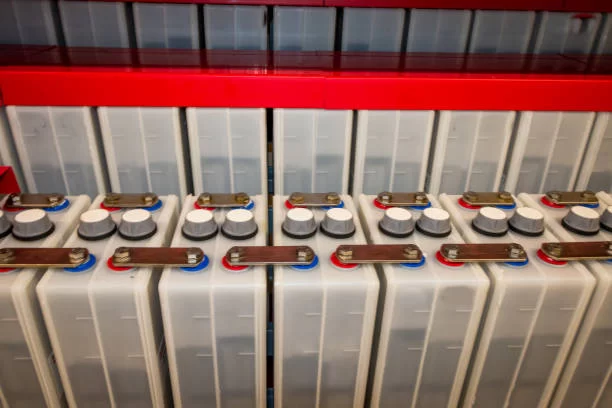BESS Battery Storage: The Future of Energy Management
In the evolving landscape of energy storage, BESS (Battery Energy Storage Systems) are making significant waves. As we transition towards renewable energy sources, effective storage solutions become increasingly crucial. BESS battery storage systems are at the forefront of this shift, offering innovative ways to manage and utilize energy. This article explores the benefits, applications, and future of BESS battery storage and why it’s becoming a key component in energy management.

What is BESS Battery Storage?
BESS, or Battery Energy Storage Systems, refers to the use of batteries to store energy for later use. These systems capture excess energy, typically from renewable sources like solar or wind, and store it in batteries. When energy demand exceeds supply, the stored energy can be released, ensuring a steady and reliable power supply.
BESS battery storage is a versatile solution that can be scaled for various applications, from small residential systems to large utility-scale installations. This flexibility makes it an attractive option for managing energy across different sectors and scales.
Why BESS Battery Storage is Important
- Maximizing Renewable Energy Utilization
One of the primary advantages of BESS battery storage is its ability to maximize the use of renewable energy. Renewable sources like solar and wind are intermittent, meaning they don’t always produce energy when it’s needed. BESS systems can store excess energy generated during peak production times and release it when production is low. This helps in making the most out of renewable energy sources and reducing dependency on fossil fuels.
Enhancing Grid Stability
BESS battery storage also plays a crucial role in enhancing grid stability. The electrical grid requires a constant balance between supply and demand. During periods of high demand, BESS can provide additional power to the grid, helping to prevent outages and maintain a stable supply. Conversely, during low demand periods, BESS systems can absorb excess energy, preventing grid overloads.
Reducing Energy Costs
For both residential and commercial users, BESS battery storage can lead to significant cost savings. By storing energy during off-peak times, users can avoid higher electricity rates during peak hours. Additionally, for businesses that rely on a consistent power supply, BESS can help in avoiding costly downtime and operational interruptions.
Supporting Energy Independence
BESS systems also provide a pathway to greater energy independence. Homeowners and businesses can reduce their reliance on the grid by generating and storing their own energy. This is particularly valuable in remote areas or during emergencies when grid power might be unavailable.
Applications of BESS Battery Storage
- Residential Use
In residential settings, BESS battery storage systems are becoming increasingly popular as part of home energy solutions. Homeowners can use these systems to store energy from solar panels or other renewable sources, ensuring they have a reliable power supply even during power outages or nighttime. Additionally, BESS systems can help in managing energy costs by storing energy when electricity rates are low and using it when rates are higher.
Commercial and Industrial Use
For commercial and industrial applications, BESS battery storage can be a game-changer. Businesses with high energy consumption can benefit from reduced electricity costs and improved operational reliability. BESS systems can also support demand response programs, where businesses are incentivized to reduce their energy use during peak demand periods.
Grid-Scale Applications
On a larger scale, BESS battery storage is used in utility-scale projects to support grid stability and integration of renewable energy sources. Utility companies use large-scale BESS systems to balance supply and demand, store excess renewable energy, and provide backup power during outages. These systems are critical in supporting the transition to a more sustainable and resilient energy grid.
The Future of BESS Battery Storage
The future of BESS battery storage looks promising as technology continues to advance. Here are a few trends and developments to watch:
- Technological Advancements
As technology evolves, BESS battery storage systems are becoming more efficient and cost-effective. Innovations in battery chemistry, such as solid-state batteries and advanced lithium-ion technologies, are expected to improve energy density, lifespan, and safety. These advancements will make BESS systems more accessible and affordable for a broader range of applications.
Integration with Smart Grids
The integration of BESS with smart grid technologies is another exciting development. Smart grids use digital communication to monitor and manage energy distribution more effectively. By integrating BESS with smart grids, energy storage systems can respond dynamically to changes in energy demand and supply, optimizing grid performance and reliability.
Expansion of Use Cases
The applications of BESS battery storage systems are expanding beyond traditional settings. New use cases are emerging in areas like electric vehicle charging, remote power supply, and even space exploration. As the technology matures, we can expect BESS systems to play an increasingly important role in various aspects of energy management.
Challenges and Considerations
While BESS battery storage offers many benefits, there are also challenges to consider:
Initial Costs
The upfront cost of BESS battery storage systems can be significant, particularly for large-scale installations. However, the long-term savings and benefits often outweigh the initial investment. As technology advances and economies of scale come into play, costs are expected to decrease.
Battery Lifespan
The lifespan of batteries can vary depending on the type and usage. While advancements in technology are improving battery longevity, it’s essential to consider the potential need for maintenance or replacement over time.
Environmental Impact
The production and disposal of batteries have environmental implications. It’s crucial to manage battery recycling and disposal responsibly to minimize the environmental impact. Additionally, research into more sustainable battery technologies is ongoing to address these concerns.
Conclusion
BESS battery storage is a crucial component of the future of energy management. Its ability to maximize renewable energy utilization, enhance grid stability, reduce energy costs, and support energy independence makes it an invaluable technology. As advancements continue and new applications emerge, BESS battery storage will play an even more significant role in creating a sustainable and reliable energy future.
By understanding and embracing the potential of BESS battery storage, individuals, businesses, and utilities can better manage their energy needs, contribute to a cleaner environment, and take advantage of the growing opportunities in the renewable energy sector. The journey towards a more energy-efficient and sustainable world is well underway, and BESS battery storage is leading the way.
